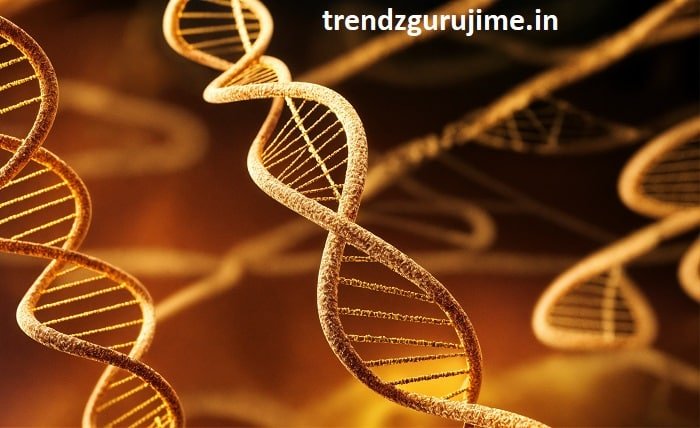In the modern era of healthcare, the intersection of DNA technology and medicine has opened new frontiers for diagnosis, treatment, and prevention of diseases. For those wondering, “Which career combines DNA technology and medicine?”, the answer lies in the burgeoning field of genetic medicine. This blog post explores the various careers that blend these two dynamic fields, offering insights into the roles, responsibilities, and educational pathways.
1. Genetic Medicine
Genetic medicine is a field that combines DNA technology and medicine to understand and treat genetic disorders. It involves the application of genetic information to diagnose, manage, and prevent diseases. Understanding genetic medicine provides a foundation for exploring careers that merge DNA technology and medicine.
2. Roles and Responsibilities in Genetic Medicine
Careers that combine DNA technology and medicine involve a range of roles and responsibilities. These include genetic testing, counseling, research, and the development of gene therapies. Highlighting these roles helps illustrate the diverse opportunities available in genetic medicine.
3. Genetic Counselors
One prominent career that combines DNA technology and medicine is that of a genetic counselor. Genetic counselors assess individual or family risk for a variety of inherited conditions, interpret genetic testing results, and provide support to patients. This role is critical in helping patients understand and navigate genetic health information.
4. Clinical Geneticists
Clinical geneticists are physicians who specialize in diagnosing and managing genetic disorders. They use DNA technology to identify genetic mutations and develop treatment plans. This career combines DNA technology and medicine by integrating clinical practice with genetic research.
5. Molecular Geneticists
Molecular geneticists focus on the molecular structure and function of genes. They use DNA technology to study genetic variations and mutations that cause diseases. This research-intensive career combines DNA technology and medicine to advance our understanding of genetic disorders.
6. Biomedical Researchers
Biomedical researchers working in genetics conduct experiments to explore the genetic basis of diseases and develop new treatments. Their work often involves using DNA technology to identify genetic markers and create gene therapies. This career path combines DNA technology and medicine through innovative research.
7. Genetic Laboratory Technologists
Genetic laboratory technologists perform genetic tests in clinical and research settings. They analyze DNA samples to detect genetic abnormalities and assist in diagnosing genetic conditions. This technical career combines DNA technology and medicine by supporting genetic testing and research.
8. Pharmacogenomics Specialists
Pharmacogenomics is the study of how genes affect a person’s response to drugs. Specialists in this field use DNA technology to develop personalized medicine approaches that optimize drug efficacy and minimize adverse effects. This career combines DNA technology and medicine by tailoring treatments to individual genetic profiles.
9. Education and Training Pathways
Pursuing a career that combines DNA technology and medicine typically requires specialized education and training. This may include degrees in genetics, molecular biology, or genetic counseling, followed by clinical training or research experience. Understanding the educational pathways helps aspiring professionals prepare for these careers.
10. Future Prospects and Innovations
The future of careers that combine DNA technology and medicine is promising, with ongoing advancements in genetic research and personalized medicine. Emerging technologies such as CRISPR and next-generation sequencing are revolutionizing the field, offering new opportunities for innovation and career growth.
Conclusion
For those seeking a career that combines DNA technology and medicine, genetic medicine offers a wide array of fulfilling and impactful roles. From genetic counselors to biomedical researchers, these careers play a crucial role in advancing healthcare and improving patient outcomes. By understanding the roles, responsibilities, and educational pathways, aspiring professionals can embark on a rewarding journey in genetic medicine.
FAQ
1. What is genetic medicine?
Genetic medicine is a field that combines DNA technology and medicine to diagnose, manage, and prevent genetic disorders, using genetic information to improve healthcare.
2. What does a genetic counselor do?
A genetic counselor assesses individual or family risk for inherited conditions, interprets genetic testing results, and provides support and information to patients.
3. How do clinical geneticists combine DNA technology and medicine?
Clinical geneticists diagnose and manage genetic disorders using DNA technology to identify genetic mutations and develop personalized treatment plans.
4. What education is required for a career in genetic medicine?
Careers in genetic medicine typically require specialized education, such as degrees in genetics, molecular biology, or genetic counseling, along with clinical training or research experience.
5. What are the prospects for careers combining DNA technology and medicine?
The future is promising with advancements in genetic research and personalized medicine, offering new opportunities for innovation and career growth in the field of genetic medicine.






